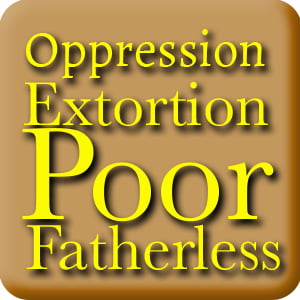5: The Cry of the Prophets – Teaching Plan
Key Thought: The prophets were focused on justice for the poor and oppressed. The call was to put an end to injustice.
August 3, 2019
1. Have a volunteer read Amos 5:12-15.
- Ask class members to share a thought on what the most important point in this text is.
- What does it mean to turn the poor aside from their right?

- Personal Application: Have you ever had to speak harshly to correct wrong? How do we know when such actions might be appropriate? Share your thoughts.
- Case Study: One of your relatives states: “How are Adventists proactive and exerting an influence in society? How do you fight for the rights of the poor? ” How would you respond to your relative?
2. Have a volunteer read Micah 3:8-12
- Ask class members to share a short thought on what the most important point is in this passage.
- What is the link between doing justice, loving mercy, and walking humbly before God?
- Personal Application: Have you ever experienced people in leadership positions using that advantage to gain power or money? Share your thoughts.
- Case Study: One of your friends states, “Is it wrong for preachers, prophets, and judges to seek to gain money for their work? Why does God condemn them for getting paid for their work? Is this speaking of bribes and under the table money to advantage someone against another?” How would you respond to your friend?
3. Have a volunteer read Ezekiel 34:2-4.
- Ask class members to share a short thought on what the main idea of this text is.
- Who are the shepherds of Israel, and why is God upset with them?
- Personal Application: How do we relate to the sick, poor, and oppressed in our community? Is it hard to help people sometimes because they make it hard to help? Share your thoughts
- Case Study: One of your neighbors states, “What does it mean that the shepherds didn’t strengthen the diseased, heal the sick, bind up the broken, return the outcasts, or seek the lost? Is this literal or spiritual in application?” How would you reply to your neighbor?
4. Have a volunteer read Isaiah 1:17, 23
- Ask class members to share a short thought on what the main idea of this text is.
- How do we keep our leaders from becoming selfish and greedy which causes a lack of pity and help to the needy?
- Personal Application: In what ways can we be more aware of and helpful to the fatherless and widowed? Share your thoughts.
- Case Study: Think of one person who needs to hear a message from this week’s lesson. Tell the class what you plan to do this week to share with them.
(Truth that is not lived, that is not imparted, loses its life-giving power, its healing virtue. Its blessings can be retained only as it is shared.”Ministry of Healing, p. 148).
